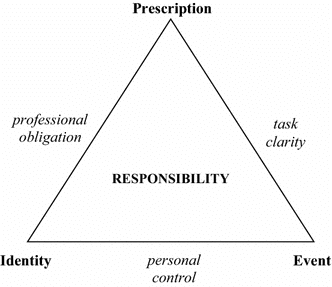
Samin Saadat
Executive Director

Samin Saadat
Executive Director
In the first part of our series, we discussed what self-control is and why it is so critical to in achieving high performance and well-being. In our second article, we discussed why self-control is so difficult and how we overcome obstacles to improve our self-regulation skills.
At the end of our last article, we left you with a dilemma: you have an established goal and solid idea of how to get there, however, you constantly come up with excuses to deviate from what you have to do. Throughout this article, we will dive deeper into why this may be the case, and how these obstacles can be overcome.
Specifically, in this article we will discuss:

Have you ever had nights when you try to fall asleep, but you simply cannot? The harder you try and the more you think about it, the more wide-awake you become. Or alternatively, when you focus on trying to eat less sugar, all of a sudden you crave chocolate and ice cream.
This phenomenon is called the Rebound Effect, in which “attempts at suppression, increase the occurrence of the thought, instead of decreasing it”. The Rebound Effect is very common and often is experienced on a daily basis. As someone who is very clumsy, I notice this all the time. Every time I remind myself not to spill the miso soup at the sushi place, or get red wine on my new shirt, I always end up doing exactly that. It seems like every time you suppress a thought, you actually remind yourself to do exactly the opposite. In its most extreme presentation, the Rebound Effect can be seen in various disorders such as Post-Traumatic Stress Disorders, Obsessive-Compulsive Disorders and Anxiety Disorders (Erskine et al., 2007; Purdon, 1999; Wegner & Zanakos, 1994).
Based on Wegner’s ironic process theory, the act of suppressing a thought activates two distinct processes:
While the Rebound Effect is challenging, hope is not lost. Here are four factors that can defeat the Monitoring Process, and decrease its impact on our minds:
Although self-control is so vital to our current and future success, we frequently find ourselves failing to exercise it. Even worse, we always have a list of excuses for why we fail! Have you ever wondered why we craft excuses, or what their psychological impact is?
When we don’t accomplish our desired outcome or our self-control fails, we are worried about looking bad in our own eyes and/or others’ eyes. To mitigate this negative perception, we come up with excuses to reduce our responsibility for the failure and the negative feelings associated with it. While it may sound inherently negative, this process is not necessarily bad or dysfunctional behaviour.
An excuse is defined as self-serving explanations or accounts, that aim to reduce personal responsibility for questionable events, thereby disengaging core components of the self from the incident

Next time you give or receive an excuse for not accomplishing a task, it is important to evaluate it. Whether it is a good excuse or not is based on how much personal responsibility you assign for the failure. There are three components to a good excuse (you can also use this model to ensure next time you delegate a task, you cover the following components to reduce the probability of excuses and increasing the chance of carrying out the task):

So what are the advantages of excuses?
Excuses help us to:
Giving excuses regularly can:
Should we give up or keep trying? Should I break up or stay in the relationship? Should I quit my job or stick it out? The impact of making these decisions can have significant consequences on our subjective well being and our life; it can be detrimental to our well being if we hang on too long or give up too soon. So what should we do?
Our coaching team at Jalapeno constantly experiences this dilemma with clients and it is very rewarding for us to be able to help people to make the right decisions on how to re-engage in their lives and work. How do we help our clients to make such tough decisions?
Addressing this question requires a new series of articles, but the key component is that whatever the basis of people’s judgement is, we need to understand we have limited resources and time and these events are not easy to predict. Thus, it is important to prioritize the resources and ensure that if we disengage from a goal, how are we going to re-engage and re-invest our resources to another goal that proves alternative direction and purpose to our lives?
We have reached the end of our series on self-control. I hope now that we know the psychological factors on enhancing your self-regulation skills, you are excited to dream big and feel confident and competent to make it come true!
Stay tuned for the next series of my articles on Transparency! What is really transparency? What are the psychological factors involved in it? How is transparency going to look like in our future workforce?
The human brain, behaviour and interactions with their environment never fail to intrigue Samin Saadat . After spending long hours in psychology labs at UBC and completing her Masters at the Sauder School of Business, she entered the workforce and observed a gap between what research suggests and what companies actually do to increase productivity and profitability. Now, Samin is on a mission to bridge this gap through Jalapeño Employee Engagement — leveraging technology and professional human services to bring research findings to life to help companies save invaluable dollars and to help individuals enhance their quality of life.